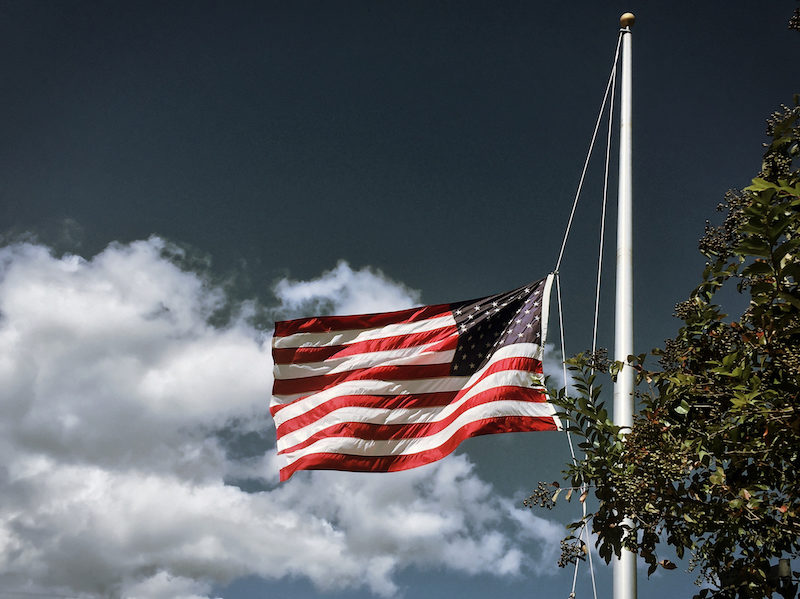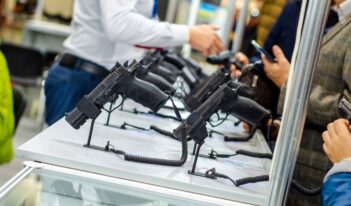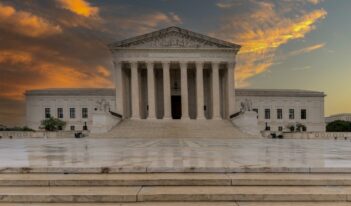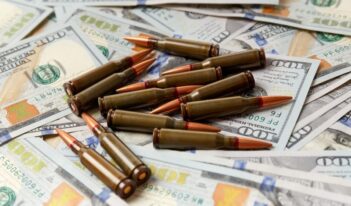
Existing and proposed federal regulations on gun dealers are inadequate.
With 300 million firearms in private hands, preventing “dangerous individuals” from acquiring guns is a formidable regulatory challenge. The federal government’s scheme is incomplete and falls far short, but whether it can be fixed is an open question.
Federal firearms licensed (FFL) dealers are the key actors in the federal regulatory regime. The Gun Control Act of 1968 requires persons in the business of selling firearms to obtain a license from the Bureau of Alcohol, Tobacco, Firearms, and Explosives (ATF). Under that law, a person who repetitively buys and sells firearms with the principal motive of making a profit is “in the business.”
It is very easy for dealers to obtain an FFL license: The application requires they send in fingerprints, pay $200 per year, and affirm that they are not covered by any statutory firearms disqualification. Today, there are electronic background checks for criminal convictions and several other disqualifications, but applicants do not have to undergo personal interviews or training.
There were approximately 400,000 of these licensed dealers in the early 1990s. Many were just private individuals who liked the convenience of being able to purchase firearms directly from out-of-state manufacturers and other sellers. The Clinton Administration, recognizing that the ATF was massively under-resourced to monitor so many FFLs, tightened up licensing criteria, most importantly by requiring FFLs to have a place of business. Eventually, the number of licenses declined substantially, and today there are about 140,000. Still, the ATF is unable to conduct a site compliance inspection of each FFL more than once every five years.
Besides becoming licensed, dealers also have legal obligations during sales of firearms. FFLs must check a prospective purchaser’s photo identification to confirm identity and in-state residency and administer the ATF form on which purchasers swear they are not firearms disqualified based on specified statutory grounds. The FFL must keep the completed ATF form for 20 years and make it available to police upon request.
Until the 1993 Handgun Violence Prevention Act, known as the “Brady Law,” there was no check on a purchaser’s affirmation of eligibility. The Brady Law required the FFL to submit the prospective purchaser’s names and identity information to the National Instant Criminal Background Check System (NICS), operated by the Federal Bureau of Investigation, for an independent check of eligibility. NICS checks the purchaser’s identity against several databases and, if a match is found, instructs the FFL not to complete the sale.
The efficacy of federal firearms regulation is therefore highly dependent on the FFLs’ integrity and compliance.
However, even if all 140,000 FFLs impeccably complied with federal law, an individual who knows that he is firearms-ineligible or who does not want to establish a paper trail can avoid the federal regulatory scheme by purchasing a gun from a non-licensed dealer on the secondary market by placing a gun-wanted advertisement in a newspaper or on any bulletin board.
There are many popular websites where willing firearms buyers and non-licensed sellers can make contact. Technically speaking, these guns are not sold “over the Internet”; buyers and sellers make their own arrangements for the transaction. President Barack Obama promised to crack down on these Internet sales by making more private sellers obtain FFL licenses, the exact opposite of the Clinton Administration’s goal of reducing the number of FFLs. In any event, under current law, an individual who is not in the business of selling firearms is not FFL eligible.
Limiting the federal regulatory regime to FFLs is often referred to as the “gun show loophole,” because gun shows are a convenient venue for casual sellers to dispose of guns. However, the loophole could more aptly be called a “black hole” because it applies to all sales by non-FFLs, wherever they take place.
Legislators have tried to correct these flaws in current federal regulation, but even the unsuccessfully proposed amendments fall short.
In the wake of the December 14, 2012 Sandy Hook Elementary School massacre, U.S. Senators Joe Manchin (D-W.Va.) and Pat Toomey (R-Pa.) introduced a bill, which President Obama strongly supported, to extend NICS firearms background checking to firearms transfers that “occur at a gun show or event or on the curtilage thereof” or “pursuant to an advertisement, posting, display or other listing on the Internet or in a publication by the transferor of his intent to transfer, or the transferee of his intent to acquire” a firearm. The bill failed in 2013, and, though reintroduced in every subsequent Congress, it has not achieved a subsequent vote.
The Manchin-Toomey bill is a good starting point for anyone interested in the potential for federal legislation to prevent dangerous individuals from acquiring guns. Putting aside serious questions about the reliability of defining broad categories of people who will for the rest of their lives be too dangerous to exercise Second Amendment rights, the bill would leave unregulated all gun transfers not initiated at a gun show or transacted pursuant to commercial advertisement on an Internet website.
Willing buyers and sellers could easily obfuscate the facts surrounding their transaction, making violations extremely difficult to identify and prosecute. Suppose Jones, admiring a firearm that Smith is offering for sale at a gun show, asks Smith for her contact information. A few days later, he telephones to say that he is now ready to purchase the firearm. If the parties complete the transaction at one of their homes, at a restaurant, or at a highway rest stop, does that sale “occur” at a gun show? What if Smith ultimately sells Jones a different gun?
The Manchin-Toomey bill would also extend background checks to firearms sales that occur pursuant to newspaper or online advertisement. Suppose that Jones sees Smith’s “gun for sale” newspaper advertisement and buys it a week later. How likely is it that a prosecutor could prove beyond a reasonable doubt that a defendant purchased a particular firearm in response to an Internet advertisement rather than in response to a friend telling him about a good buy on a gun that the friend saw on the Internet or heard about from someone else? Moreover, if history is any guide, federal law enforcement personnel and prosecutors will not have time, resources, or interest to deal with such infractions.
Additionally, the bill did not establish a means for initiating NICS background checks on purchasers who acquire guns at gun shows or through an Internet listing. One option would be to require the seller and buyer to appear before an FFL with the gun to be transferred and to have the FFL initiate the NICS background check. This option would depend upon purchasers’ and sellers’ voluntary compliance. It would also require FFLs’ cooperation.
A second option would be to give non-FFL gun sellers direct access to NICS and to require such sellers to maintain some sort of record proving that NICS approved the purchaser and sale. In effect, this strategy would mean that any private person could obtain information from NICS about anyone whose background they are curious about, which would raise privacy concerns and strain NICS resources.
In short, establishing a federal regulatory scheme that can even plausibly claim to keep guns out of the hands of dangerous persons is an immense challenge. Probably the most feasible solution is for the federal government to require states to demand that all firearms purchasers have a valid license, but that would be an unconstitutional exercise of federal authority under the Tenth Amendment. States are free, of course, to pass such laws themselves, and several have done so. But those laws can easily be avoided by individuals who are license-ineligible.
The Brady Law accomplished little because it does not cover secondary sales, and the Manchin-Toomey bill, the most serious effort to extend Brady to secondary sales, would fall far short of that goal.
This essay is part of a nine-part series, entitled Bringing Expertise to the Gun Debate.




